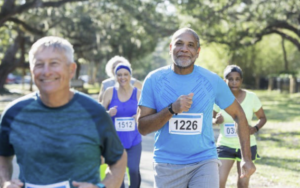
“A place where no Senior will ever walk alone”
HEALTH AND WELLNESS
Program 17
“Keep a sense of happiness and satisfaction”

It’s a fact, we will all age and we all have people in our lives that are ageing: parents, grandparents, and friends. Most of us wish to retain our wellbeing and autonomy physically and mentally – to remain in our homes, in our communities. Within widely varied social, economic and cultural contexts, how can we help people understand their options, make informed decisions and activate themselves towards a state of wellbeing as they grow older? How can we help people thrive and live the lives they wish to live as they age?
“If it takes a village to raise a child, then it must take a nation to support a senior.”
WITH RESPECT
THE SOSOPWORLD TEAM
416-500-8207
Our Partners



